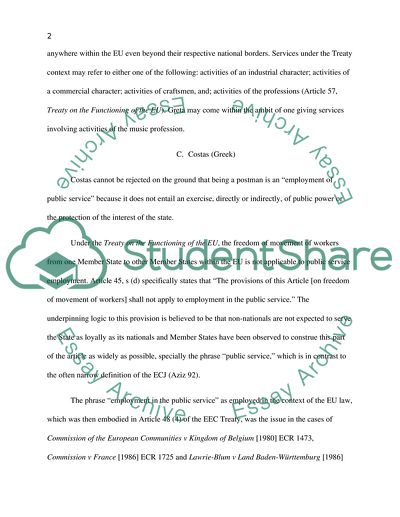Cite this document
(European Single Market Assignment Example | Topics and Well Written Essays - 1750 words, n.d.)
European Single Market Assignment Example | Topics and Well Written Essays - 1750 words. https://studentshare.org/law/1569352-law2112-european-single-market
European Single Market Assignment Example | Topics and Well Written Essays - 1750 words. https://studentshare.org/law/1569352-law2112-european-single-market
(European Single Market Assignment Example | Topics and Well Written Essays - 1750 Words)
European Single Market Assignment Example | Topics and Well Written Essays - 1750 Words. https://studentshare.org/law/1569352-law2112-european-single-market.
European Single Market Assignment Example | Topics and Well Written Essays - 1750 Words. https://studentshare.org/law/1569352-law2112-european-single-market.
“European Single Market Assignment Example | Topics and Well Written Essays - 1750 Words”. https://studentshare.org/law/1569352-law2112-european-single-market.


